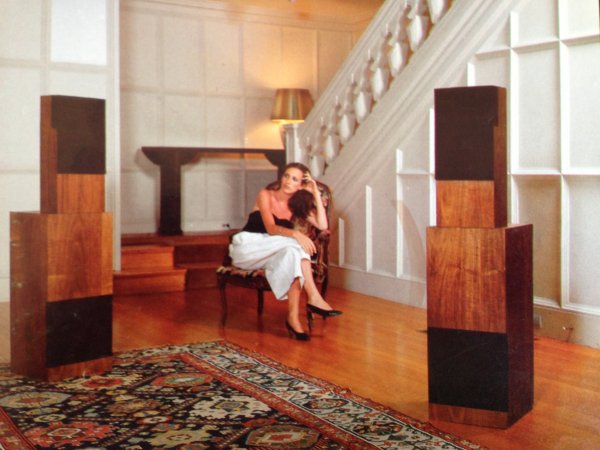But the post that Amir answers above is an unfettered and uninformed attack on the work of Toole and Olive. It is an insult to them and everyone who believes in the scientific process. It is an indictment of incompetence against the research and the researchers, and what's worse, it is obvious that the accuser didn't have a clue about how the research was designed and executed.
Since the post was mine, I’ll respond to you, Tim.
To the first point: What qualification do you suggest I hold in order to put forth some potentially valid criticisms of a publicly listed corporation involved in research for profit? Would I need to be a peer? Hold a degree in a similar field? Be elected to a position to defend consumer rights? If it’s none of those things, then calling the above an “unfettered… attack” reeks of reactionary emotionalism and defensiveness. No one is above critique, Tim. That’s the ‘Merican way. A constitutionally supported democracy should be involved in encouraging its citizens to freely question the establishment, because if it is not, then it’s not a democracy. Asking questions about how a for-profit company conducts its research is not an “attack”, its called exercising freedom of speech.
“Uniformed?” I read the paper the company’s VP wrote on how they conduct their research (downloaded from here:
https://www.google.com/url?sa=t&rct=j&q=&esrc=s&source=web&cd=3&ved=0CCoQFjACahUKEwj5xaOOiZrHAhUEuRQKHTWEBuk&url=http%3A%2F%2Fwww.harman.com%2FEN-US%2FOurCompany%2FInnovation%2FDocuments%2FWhite%2520Papers%2FLoudspeakersandRoomsPt2.pdf&ei=cETGVfnNC4TyUrWImsgO&usg=AFQjCNFsdYMWG0hLEgaj-6qQ7-h2zsafDw&sig2=qX_TNtPNyRaZuVerPR6WFA&bvm=bv.99804247,d.d24) and couldn’t find any statistical certainty measurements apropos any of their findings. What’s more, I’ve sat through slides and “training” from Harman employees when I worked for four years part-time in a high-end retailer during my second university stint. I’ve sold their products. I’ve read the manuals. Anything else you’d like to me have done?
Of course, I don’t claim to have anywhere near the experience of writing technical papers for a corporation that pays me to do so, and allow that there are going to be gaps in my knowledge because of that. That’s why I had some questions, Tim. Can I ask, are you okay with the research methodology?
To the second point: An insult is intended to offend someone personally. An indictment implies accusation. Neither Toole nor Olive were personally accused of anything. I was questioning the robustness of their company’s research controls, having read through the papers and not found any.
To the last point: Like I said, I read the papers, found no information as to how they control for confounding variables or conflict of interest, and responded to a post from a person who we know has a vested interest in defending the research due to their company being in a position to gain financially from its dealer status with the corporation in question. Yes, Amir is one of the founders of the forum, and has declared his dealer status. That still doesn’t make him, Toole or Olive above critique.
And you’re right, I had many questions about how the research was designed and executed, and I still do. But since my line of questioning has only seemed to create defensiveness, I’ll abandon it because I just don’t think it’s worth entering into personally-charged slanging matches over first-world problems.
I will say this though. I believe in the scientific method in as much as conflicts of interest can be eliminated and statistically certainty can be substantiated. And I also believe in the heuristic approach to building a narrative of enquiry where that individual’s experience is owned as their own but shared within a sympathetic community. This hobby is filled with both approaches and I’m glad it is. But I’m glad scientists didn’t dismiss outright the highly unusual and scientifically unsupported anecdotal claims of a woman in 1989 whose experience of her dog taking an specific interest in a skin legion lead to the correct diagnosis of a malignant melanoma. Had they done so, we would not have uncovered a line of potentially life-saving medical research* in which dogs are now being trained to use their oncological senses in the detection of volatile organic compounds related to tumours. Given the standard scientific Prostrate-Specific Antigen test already has a high false positive rate (less than 1 in 4 men who test abnormally have prostrate cancer) leading to unnecessary invasive surgery, further study based on canine prostrate detection in urine seems worth pursuing, as crazy as it may seem to those who hold rigorously to the established norms of PSA.
*The initial study in 2004 had power in excess of 95% to show a statistically significant result (P < 0.05) for a mean success rate of at least 55%, irrespective of the method of analysis used. They assessed power by 1000 stochastic simulations of the experiment with each dog having an expected success rate of between 45% and 60% (mean 55%). The results were analysed by t test and bootstrap techniques, to ensure that the power was adequate under both forms of analysis.
P.S. For anyone interested, I just started a new thread in the Jazz Forum on favourite John Zorn releases.




